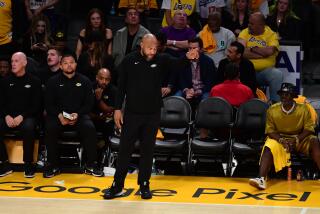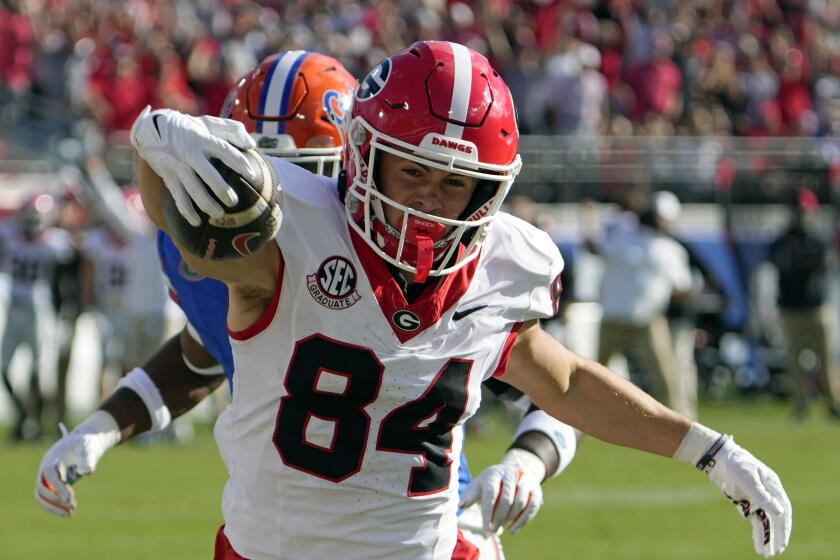Tour still has its dopes
If there is still Reader’s Digest (there is, right?) and if it still does a feature called “Can this marriage be saved?” we have a suggestion for a change of topic.
Can cycling be saved?
Maybe. But only if the sport is shut down for a year.
Another cyclist of some renown, 37-year-old Manuel Beltran, was hauled from his Liquigas team hotel by police Friday. Too much EPO in his blood. Reportedly police searched rooms of other Liquigas riders, though the team has not been kicked out of the Tour de France. Beltran has.
A sport that has been dirty for decades can’t totally come clean in a year, so this wasn’t exactly a surprise. And if you’re keeping score, Beltran becomes the fourth former Lance Armstrong teammate to have publicly failed a doping test. Tyler Hamilton, Roberto Heras and Floyd Landis are the others.
If two years of doping scandals, arrests, suspensions and tour champions’ getting stripped of their titles isn’t enough to scare straight the Beltrans of the peloton, then more drastic action needs to be taken.
Make everybody start over. Give the veterans the chance to retire gracefully if they are unable to wean themselves off the EPO, the HGH, the steroid creams, the amphetamines and whatever else it takes to fuel them up 10,000-foot climbs.
Give the organizers time to decide if the race should be 21 stages, over 2,200 miles and up such startling climbs as the 21-switchback L’Alpe d’Huez.
If you can hardly make it up a mountain in a car, if it is a common sight, autos with burned-out clutches, then maybe it’s not made for bike racing.
And make no mistake. It’s not as if cyclists used to make the mountain climbs fueled by nothing but good training and clean living. A hundred years ago it was reported riders were using arsenic and excessive caffeine as energy boosts. An occasional death by heart attack was collateral damage.
If sponsors leave, then too bad. They were leaving anyway. The new ones, like Columbia Sportswear and Garmin, might appreciate if everyone starts from scratch.
Beltran was reportedly one of 20 cyclists to have exhibited “abnormal” results from pre-race blood tests. If that means a daily dose of cyclists perp-walked out of this Tour as they fail further testing, then it might be best to shut the race down sooner rather than later.
Jonathan Vaughters, co-owner of Boulder, Colo.-based Garmin-Chipotle, said via e-mail Friday that Beltran’s ouster from the Tour shows amped-up drug testing is working.
“If the system were as it was 10 years ago, this wouldn’t have been detected,” Vaughters said. “So now it was. The anti-doping authorities are doing a good job.”
But open as Vaughters has been for two years about letting the world in on how his team is tested monthly, Vaughters turned cautious when asked if any of his riders could be part of the “abnormal 20.”
“As far as I know, none of our guys were part of the 20,” Vaughters wrote. “But I guess you never know.”
It wasn’t a celebratory moment earlier this week either when Gerolsteiner rider Stephan Schumacher took the yellow jersey and had to explain away the amphetamines found in his system when he was pulled over for drunk driving last fall. Drunk and hopped up is not how Tour organizers want their yellow-jerseyed leaders to be known.
Bob Stapleton, the co-owner of Team Columbia who rescued the squad last year when T-Mobile bailed, said he had been “shocked” at how deep the problems of doping and political infighting ran.
Even as his team found a new sponsor last month, Stapleton would offer only “cautious” optimism about the sport’s future. He spoke about the skepticism he found from some European teams when he suggested ice baths after a stage were more effective than booster shots.
Hope for the sport will ride with young competitors like 23-year-old Mark Cavendish, who won a sprint stage for Team Columbia, or 27-year-old Will Frischkorn, who almost won one for Garmin-Chipotle. But only if the Beltrans of the sport (and their trainers and doctors and managers) are made to go away for good.
--
More to Read
Get our high school sports newsletter
Prep Rally is devoted to the SoCal high school sports experience, bringing you scores, stories and a behind-the-scenes look at what makes prep sports so popular.
You may occasionally receive promotional content from the Los Angeles Times.






